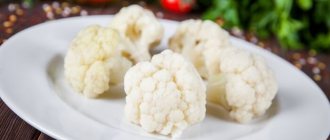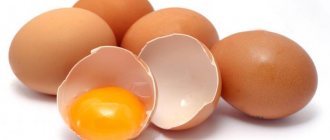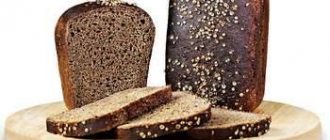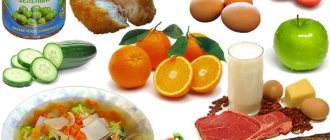A sweetener is a substance that gives a food product a sweet taste. Used as an alternative to sucrose as a result of illness, weight loss or other reasons. A distinctive feature of sweeteners is their low calorie content with the same intensity of taste.
The international association, which includes manufacturers of low-calorie products and sweeteners, classifies fructose, sorbitol, xylitol, stevioside, lactulose and some others as sweeteners.
Sweetener: harm and benefit
In the beginning, sucrose was a medicine. It was extracted from sugar cane and they tried to treat diseases with its help. Times changed, the value of sugar fell with each new discovery, and when they finally learned to extract sugar from beets, this sweet additive became cheaper and became available to everyone.
It took some time for medicine to pay attention to the natural negative effects of sugar. Today, even a child knows: sugar is harmful. Once in the body, granulated sugar is absorbed instantly, since its glycemic index is 100%. It contains no useful microelements, vitamins and minerals - only pure energy. Excessive consumption of sugar, which manufacturers use in the vast majority of products, leads a person to obesity, diabetes, and cardiovascular diseases.
It was under these conditions that the search for a sucrose substitute began. Some studies seemed inspiring: zero calories, but just as sweet. It was possible to add a sweetener to foods and not gain excess weight. For diabetics with a sweet tooth, the sweetener turned out to be a real salvation - sweets, but without the health risk.
Unfortunately, the dangers of sugar substitutes became known very quickly. Without threatening your figure, synthetic or natural sweeteners cause cancer, Alzheimer's disease, infertility, and dementia. Yes, despite the benefits of sugar substitutes, their harm is much greater than their benefits: laboratory studies have confirmed the development of neurological and oncological diseases. True, we were talking about impressive doses, hundreds of times higher than the daily norm, but still this was enough to alert the public.
The established restrictions add fuel to the fire. If a person suffers from diabetes, then fructose is contraindicated for him, and in case of heart failure, acesulfame-K is excluded. The list goes on for a long time. Sweetener is prohibited for pregnant women and children. As a result, opinions diverge at the most authoritative levels, leaving the common man with hundreds of unanswered questions.
The continuous development of science will ultimately provide more intelligible and elegant solutions. Sugar is harmful, and apparently so is sweetener. What then remains? Let's try to figure out what we have at the moment. Everyone must draw their own conclusions.
Tips for choosing
When choosing a sweetener, pay attention to several main points:
- Assess the product's risk to your health. If your choice is on the side of natural substitutes, buy stevia and erythritol as they are natural.
- Suitable substitute for diabetics. This is indicated on the packaging in the “glycemic index” column.
- Safe to use by pregnant women. We recommend stevia, but consultation with a gynecologist and nutritionist is required, taking into account the individual characteristics of the body.
Natural sugar substitute
The main advantage of natural sugar substitutes is the natural composition. Their energy value is significantly lower than glucose, and their taste is just as sweet. This group of sugar substitutes includes, first of all, fructose, as well as sorbitol, isomalt, xylitol, etc.
Fructose
Fructose, like other natural sugar substitutes, is of plant origin. It is found in berries, fruits and honey. Outwardly, it is very similar to sugar, but much sweeter, and raises blood sugar levels 3 times slower. That is why when dieting, it is recommended to limit yourself to sweet fruits and berries - their sweetness is more than enough to feel the sweetish taste and not gain weight. As for diabetics, the use of fructose in their case is prohibited.
Surprisingly, the energy value of fructose is the same as that of sugar, but unlike the latter, it is harmless and even beneficial for active people with heavy physical activity. The biggest advantage is that even with a sweet sensation in the mouth, the teeth do not suffer from caries - the effect of fructose does not affect the enamel of the teeth.
This set of positive qualities of fructose has played a cruel joke on people. Despite the usefulness of this sugar substitute, its use also affects the figure, not so quickly, but can still cause obesity. The fact is that eating a sweet fruit is not the same as eating pure fructose from this fruit. Her concentration comes into play. So, you can use this substitute, but not more than 45 g per day and in the absence of excess weight or diabetes.
Sorbitol and xylitol
Sorbitol is found in apples, rowan berries, apricots, and seaweed. It is 2 times less sweet than sugar, has the same calorie content, but has almost no effect on blood sugar levels and slowly penetrates the tissues. This is where its advantages end, since for all its positive properties it causes flatulence, nausea, diarrhea and impairs digestion. Its use leads to the rapid development of gallstone disease.
Xylitol is found in the husks of cotton seeds and in corn cobs. It is as sweet as sugar, but causes bladder cancer.
With such a set of side effects, it is difficult to recommend such substitutes. The fault is again in their concentration.
Stevioside
Stevioside is better known as stevia. This is an extract of the herb of the same name. It is non-toxic, has no side effects, tastes good in itself and is affordable. For diabetics and those suffering from obesity, stevia is offered first.
Surprisingly, there is no information about the dangers of this substitute. This is most likely due to the recent introduction of stevioside into the market. How useful and harmless stevia is, time and further research will tell.
So far, among its disadvantages, only a very unusual taste can be distinguished, which is also lost with a number of products - cocoa, for example. Therefore, when creating your next culinary masterpiece, do not be surprised that a healthy dessert turns out to have an incomprehensible taste - with a bitter taste.
The best sweetener: selection criteria
You should immediately understand that there is simply no ideal substitute for refined sugar that meets all the requirements at once. Therefore, in each specific case, certain parameters come first.
Things to consider when choosing a sweetener:
- safety and absence of side effects, possible use for children and during pregnancy;
- purity of taste: how pleasant it is, without any extraneous shades;
- calorie content (not only per 100 g, but also per serving);
- glycemic index;
- solubility in water;
- release form, ease of use;
- resistance to high temperatures;
- price.
You also need to take into account that often dietary supplements are a mixture of several ingredients with different properties. Therefore, when purchasing, always read the ingredients!
Safe sweeteners for weight loss
Since the main requirement for food when losing weight is a minimum energy value to avoid fat deposition, it is worth choosing sweeteners with low calorie content. These are all synthetic substances, as well as pure stevioside.
How can you replace sugar?
We will not talk about chemical substitutes, because their harm is obvious and unpredictable, and always negatively affects the body. Despite the disadvantages of natural sweeteners, it is still possible to find an alternative with some limitations, as we wrote about above.
If fructose is not suitable for you, you refuse sorbitol for obvious reasons and do not want to take risks with stevia, what can replace sugar in this case?
Again - natural sweeteners. Unlike quickly digestible sucrose, natural options contain vitamins, phytohormones and antioxidants, so there are many times more benefits and less harm.
Honey
For us, honey is the most understandable and easily accessible substitute for sucrose. We use it both as an addition to dessert and as a medicine. This is a high-calorie product with a high glycemic index. There are a number of rules for use and restrictions for certain diseases, and yet honey is the very sweetener that can replace sugar.
Nutritionists may disagree and there are always individual differences, but most experts believe that one teaspoon of honey a day will not cause harm - only benefit. Consult your doctor before using or consuming it.
Honey is not suitable as a replacement for sucrose during a diet, but it should not be considered as a substitute for a sweetener, but as an additional product for health improvement.
Jerusalem artichoke syrup
Trying to figure out how to replace sugar, many people ask about Jerusalem artichoke syrup. This is an amber-colored solution with a brown tint and a thick consistency. It is made from Jerusalem artichoke or earthen pear. The sweetness comes from fructans, but such polymers are very rare in nature.
Fructans are good because they satiate you for a long time, and glucose is released only in the intestines, and not in the stomach, which happens with other sweeteners. Organic acids, B vitamins, minerals, pectins, amino acids in the composition are a pleasant and healthy addition.
Agave syrup
In an attempt to understand what can replace harmful sugar, many resort to agave syrup. But if you want to maintain your figure, it’s better not to pay attention to this sweetener. The preparation of syrup is accompanied by the release of a huge amount of fructose, which in itself is dangerous for humans. Your blood sugar may not rise, but experiments with new sweet syrups will have an impact on your figure.
Fructose in agave syrup is at least 97% and this is much more than other options. You need to be extremely careful when choosing products that contain syrup.
Maple syrup
Maple syrup is another syrup that comes from the maple tree. What vegans replace sugar with is maple syrup. If everything is fine with health, then this sweetener can be used, although we must not forget that with all its advantages, syrup is still a highly concentrated sugar mixture.
Despite the same and even slightly higher calorie content, nutritionists and other experts advise replacing sucrose with any of the proposed options. Natural sweeteners have a more natural and at the same time more pronounced taste, which means the dosage can be halved without loss of sweetness.
Yes, extra pounds will not disappear if you rely on honey or maple syrup, but their use is justified by their vitamin and mineral composition, while the use of sugar is not.
If there is a food addiction, then the substitution trick will not work. It is necessary to develop an integrated approach when creating a new food system. Don’t be under the illusion that natural sweeteners are healthy or less caloric; their excessive consumption will inevitably lead to illness and excess weight.
Agave syrup "Bite"
The agave plant grows in Mexico, its nectar, obtained from unopened flowers, has a very sweet taste, so a sugar substitute has been produced from it for more than a hundred years.
Agave contains many useful components that have a positive effect on human digestion and the immune system. For people involved in sports, Bite agave syrup will also be very useful, since the amino acids it contains are involved in building protein, and therefore muscles. This syrup contains fructose, which, unlike cane sugar, is better absorbed in the human body.
Agave nectar has very wide uses. In cooking, it is used for baking, making drinks and artificial honey. In medicine, agave is used to combat inflammatory processes.
Despite all the benefits of the syrup, there are also contraindications, such as: obesity, diabetes, liver disease, problems with the thyroid gland.
Bite's agave syrup contains 85 percent fructose, which indicates its high quality. The glycemic index of this syrup is quite low, and its taste is very pleasant, sweet with a caramel aftertaste. Bite also contains vitamin C. The price of such syrup is on average 250 rubles per 200 grams.
Is it possible to replace sugar and improve your health?
Sugar is the number one enemy for a beautiful figure, longevity, and energy in the body. Those who try to eat right, who want to lose weight, and who plan to get well refuse it. To an inexperienced beginner, it seems that giving up sugar is the path to a bland life, because if you look at store shelves, 90% of products contain sugar in the form of an additive. It is added to mayonnaise, sauces, bread, canned foods, not to mention flour and sweets.
Is it possible to somehow replace sugar and enjoy sweet dishes without harm to the body? It is possible, but with certain restrictions that apply depending on the individual characteristics of your body.
Vegans have found great alternatives in the form of coconut sugar, honey, molasses, agave syrup, stevia and maple syrup. We have talked about most of them, it remains to mention coconut sugar and molasses.
Coconut sugar contains vitamin B and potassium. It has a low glycemic index and is processed much less than what you have to do to make regular white sugar. It has a pleasant caramel taste and this sugar is ideal for baking, but you need to remember to use a sense of proportion even in this case. The only negative is the cost is too high.
Molasses contains potassium and iron, and it contains more of both than bananas. It is also good to use in baking, but abuse, as in the cases above, leads to harm to health.
To improve your health, white sugar should definitely be excluded, but when looking for an alternative solution, you should not look at substitutes as an analogue. You can't throw away a packet of white sugar and replace it with a packet of stevia and feel confident that your health is now safe. This is wrong.
First of all, you need to reconsider your diet. Increase the amount of slow carbohydrates, balance with vegetable protein and fats. Moderation and a reasonable approach should become your credo in life, otherwise alternative sugar will improve your health in one place and worsen it in another.
If you have problems with excess weight, you need to change your diet. Diabetes? Cardiovascular diseases? The diet is changing again. The new system should be developed together with a nutritionist, who will definitely mention that the problem of replacing sugar will fade into the background on the list of pressing issues.
Your body must learn to cope without concentrated sugar, whether natural or not. The simpler your dishes in your daily menu, the better for your stomach.
The best sugar substitute
You already know how harmful sugar substitutes are and that ultimately they cannot serve as an alternative to sucrose. You need to rebuild the way you eat and then you won’t have to worry about where to buy a sugar substitute, you won’t even need it.
In a number of recipes it is impossible to do without a sweetener, and in this case it is allowed to use one of the natural substitutes. But you shouldn’t get carried away with such cooking, for the sake of curiosity or a festive table - yes, for everyday life - no.
Honey is the best sugar substitute for baking and as a simple sweetener. For many reasons. Yes, it has a high calorie content and not the lowest glycemic index, but it is healthy and has a beneficial effect on the body.
If you don't have problems with stomach acidity and you're not on a diet right now, then honey is the best alternative. You can’t eat a lot of it, you’ll quickly feel satisfied and it’s easy to use in desserts.
A huge plus for him is the variety of species with unique sets of useful properties. You can easily find the one that suits you best.
It remains to mention perhaps its most important advantage - the familiarity of taste. If you are a vegetarian or a health conscious person, it is important to eat what is grown and produced locally. Exotics in the form of coconut sugar or agave syrup can cause something like stress for the body. Reduce the load on your stomach - eat what is familiar to your area. Therefore, honey has primacy.
Comparison table of characteristics
The table below presents the main characteristics of the products in question. By correlating them with each other, it will be easier for you to compare products and choose the sweetener that meets your wishes.
| Name | A country | Property | Calorie content |
| Fructose Novasweet | Russia | has a low glycemic index, the most popular sweetener, natural | 0 |
| Erythritol Bionova | Russia | no calories, does not increase blood sugar levels | 0 |
| Sorbitol Novasweet | Russia | natural composition, no GMOs and dyes | 0 |
| Stevia Novasweet | Russia | premium substitute, glycemic index=0 | 0 |
| Sucralose Milford | Russia | suitable for sports nutrition | 0 |
| Aspartame Novasweet | Russia | convenient production format, compliance with quality standards | 2 |
| Cyclamate Milford | Germany | best synthetic substitute | 20 |
Sugar replacement products
Despite the fact that natural sweeteners should not become a complete replacement for sucrose, but only a forced solution in rare cases, our body loves sweets and there is no need to give it up.
When those who want to lose weight or improve their health ask whether it is possible to replace sugar with fructose, experts answer positively, but they do not mean pure fructose in the form of concentrate, but the sweetness of fruits.
Along with honey, sweet fruits are those pleasant-tasting foods that we can eat without causing health problems. It is from their juicy pulp that we get the sweetness that we miss.
Don't try to replace sugar. A concentrate, even a natural one, is slower, but will cause harm. With rare exceptions in case of illness, fruits are absolutely safe, tasty, and enriched with vitamins and minerals. These are natural products that the earth gives us in abundance. Fruits are the best and truly safe sugar.
If you are worried that without sweeteners your dishes will not be as tasty, then you always have honey left, and you can make ice cream, mousses, smoothies, yoghurts, pies, and cakes from fruits.
Harmony with your body is harmony with nature. Take the best from her and your health will remain strong.
25-03-2020
What is a sweetener
Sugar substitutes have a sweet taste, but do not contain sucrose. There are synthetic and natural.
The first ones are close in composition to sucrose and are practically not inferior in calorie content to sugar (fructose and stevia, for example). Usually made from natural (natural) raw materials.
The second (non-caloric) are synthesized from artificial components and do not participate in metabolism. The calorie content is much lower than that of regular sugar. Plus, the taste of such additives is more sweet; some, for example, aspartame, are 200 times sweeter (when compared with regular sugar). The disadvantages are contraindications and the risk of side effects.
Benefits and harms
Many people are gradually eliminating sugar from their diet. This may be a personal desire (diet, for example), a deterioration in health, or the recommendations of the attending physician. In any case, it can be very difficult to give up sweets, so manufacturers offer a wide selection of sweeteners as an alternative. The main thing is to choose them correctly and follow the recommendations, without exceeding the recommended daily dose.
Any substitutes are safe for the figure. You won’t be able to “eat up” those extra pounds by adding sweeteners to your food. Products in syrup form are suitable for people suffering from caries and thinning tooth enamel. In this case, the harm from their use to the oral cavity and teeth is much less than from drinks or foods with natural sugar.
About negative consequences:
- Obesity - despite the low calorie content, if the recommended dose is exceeded, weight gain is possible. Sweeteners are not absorbed by the body, but change the composition of microorganisms in the intestines, which, according to scientists, leads to obesity.
- Poisoning – refers mainly to artificial additives. Some components are not excreted from the body naturally and accumulate, gradually poisoning it.
The problem is that it is intoxication that can become an impetus for the development of dangerous diseases.
Kinds
All existing additives can be divided into several groups:
- Degree of sweetness - almost all sweeteners are superior to sucrose in this indicator.
- Calorie content is indicated on the packaging; information is necessary for people with diabetes.
Supplements are also divided based on the participation of the main substance in metabolic processes:
- Natural (true) substitutes are full-fledged participants in metabolism. When using, be sure to follow the instructions for use (daily dose, etc.).
- Artificial sweeteners are practically useless. Not absorbed, do not affect metabolism. In general, other than sweetness, they have no benefit.











